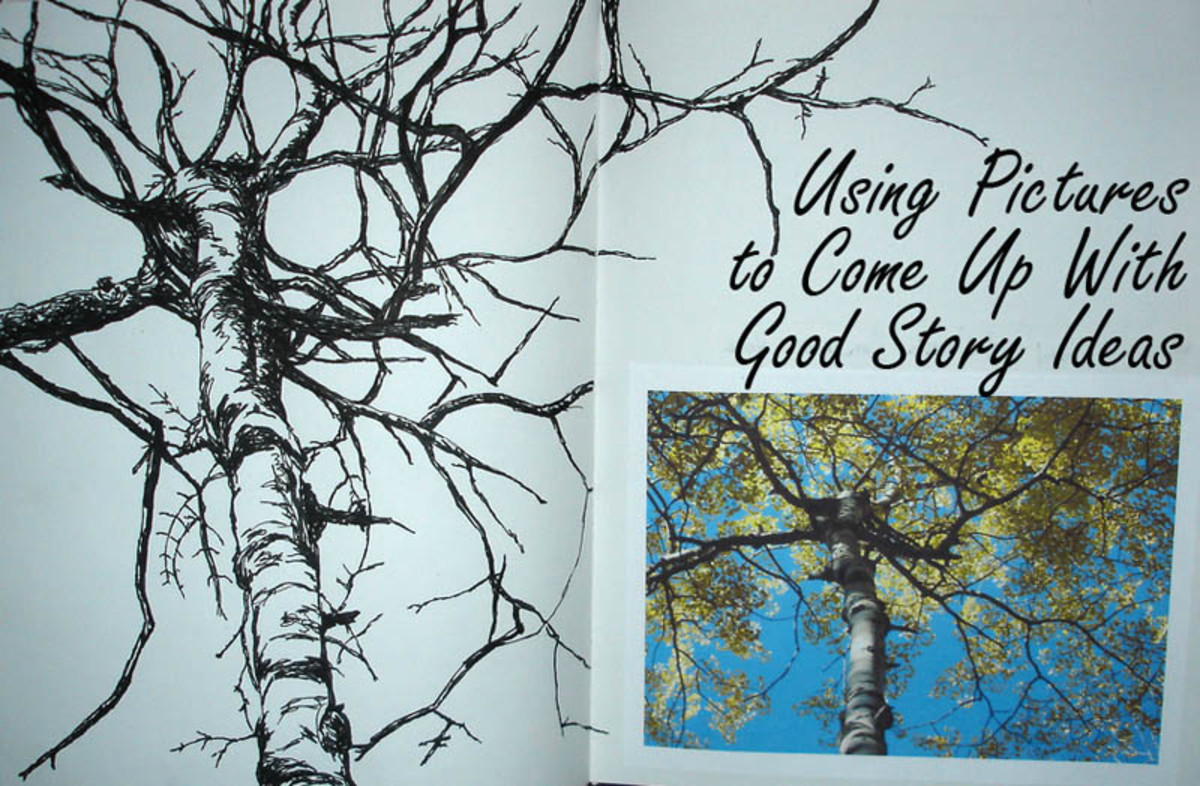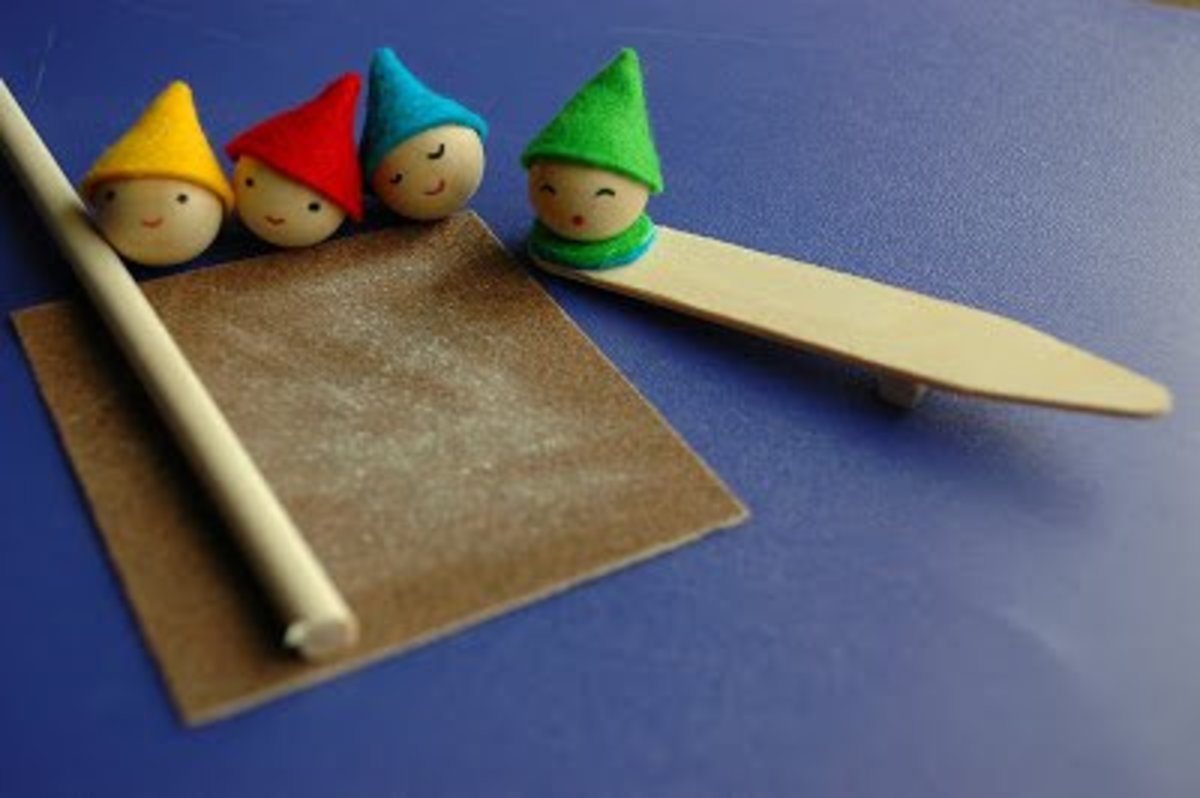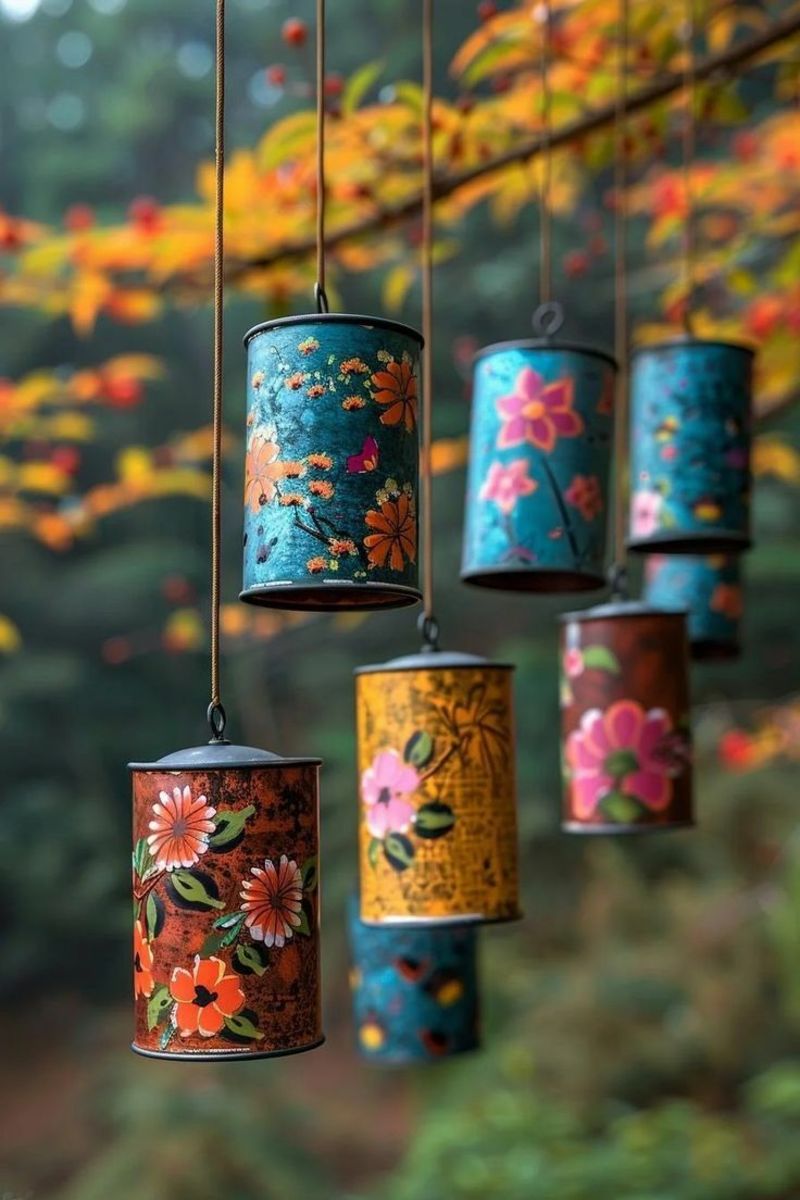How to Overcome Artist's Block
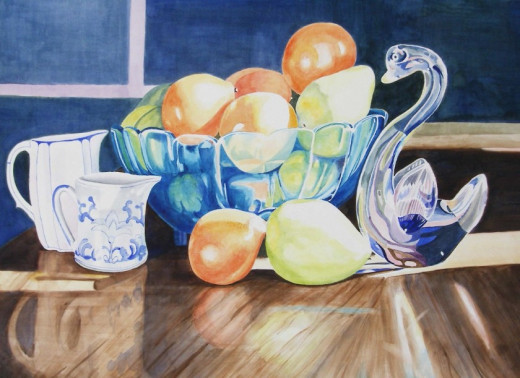
What to do when you don't know what to do
Everyone who expresses themselves in a creative fashion has experienced it to some degree. We are quite familiar with the expression "writer's block," but visual artists experience much the same thing. We are cruising along, working at our art, when suddenly we hit a virtual "brick wall." We are at the point where we are ready to start that new piece (masterpiece, we hope!) and no ideas come to the fore. Or, perhaps, we are in the midst of a painting (or work of any type) and inspiration, and our motivation to continue, seems to vanish. What to do? First and foremost, don't panic! We all go through dry spells in our creative lives, and this period of quiet can actually be a blessing in disguise.
In this article I will give advice on things that have worked for me when I have been faced with a lack of inspiration or ideas. Not all of the ideas I give here will work for you, but hopefully a couple of them may help.
1. Don't stop!
In spite of the advice I gave in an earlier hub about troubleshooting your art (Five Ways to Troubleshoot Your Art), do not give yourself permission to stop creating. My advice in that article was to take a break from the one particular work that is giving you problems - not to take a break from your art completely. As artists, we must discipline ourselves to work consistently and frequently in spite of what our "mood" or mindset might be at the time. I'm reminded of a quote I love by Pearl S. Buck who said, "I don't wait for moods. You accomplish nothing if you do that. Your mind must know it has to get down to work."
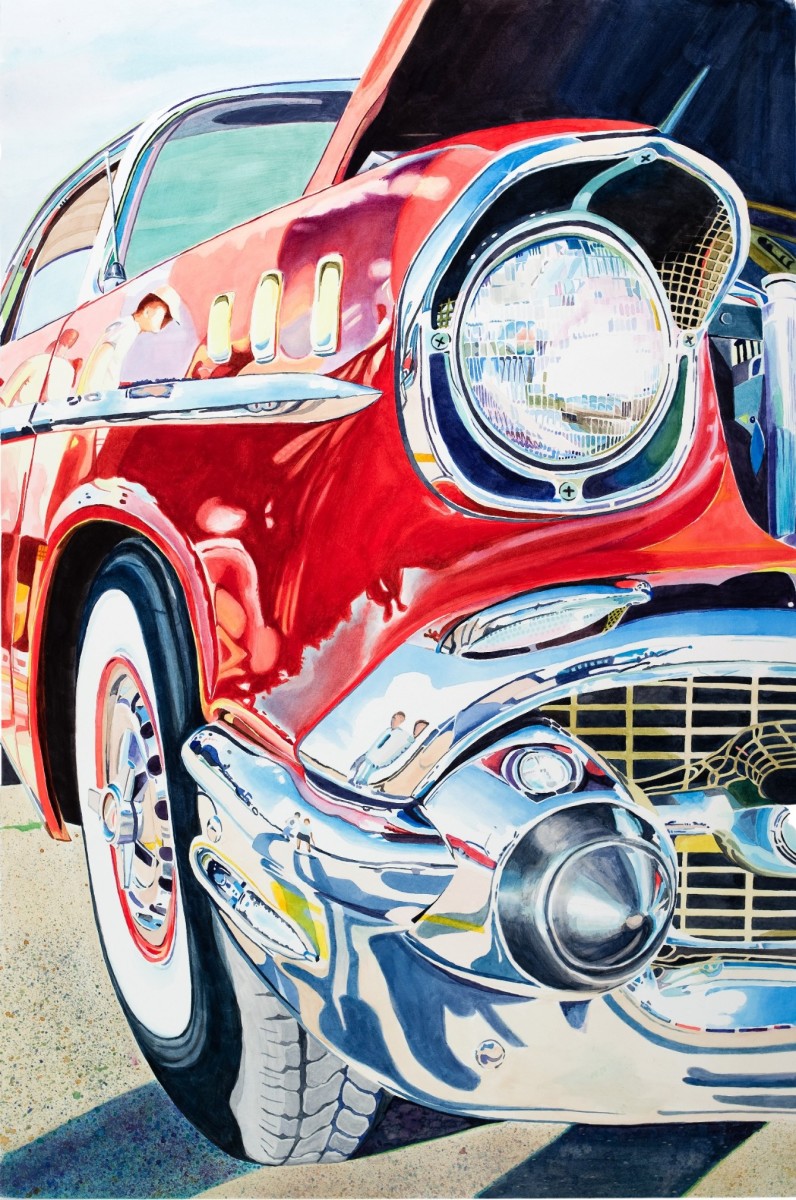
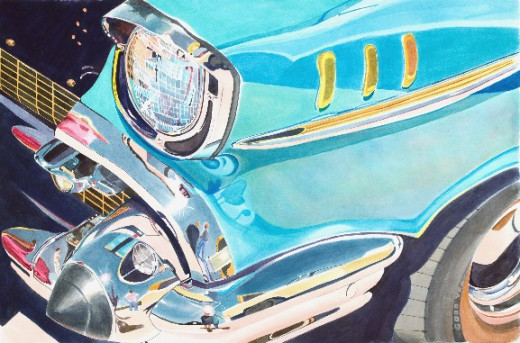
2. A fond look back
Many times when at a loss for ideas for new work, or directions to take on a work in progress, it helps to look back at some of the pieces you have recently completed. It is meaningful to look back at the work you've done to look for things that have inspired you in the past. Sometimes a theme will come through the work you have created that you can now use to expand on or continue. This was true for me when I painted Fifites Fender II as an outgrowth of the watercolor Fifties Fender. I am not suggesting that you "repeat yourself" by producing work that is too closely related to things you have done before, but rather that you find ways to expand on a theme, complete an idea, or say something new while exploring a familiar image or concept.
3. Focus your mind somewhere else, somewhat
Some of my best ideas and inspirations have come from times when I wasn't at all occupied with my art. Doing some task that requires concentration can somehow free the creative part of our minds to find ideas and inspiration. In another of my hubs, "How to Create Christmas Cards," I tell about how I came up with the concept for the Christmas card while driving my car. Doing a craft like knitting or crochet can also serve this purpose of occupying your mind on a certain level while letting your creative mind run free.
So, when you're "stuck" in your creative life, try an activity like those suggested above. You may be pleasantly surprised that new inspiration may come your way.
4. Try something new
When you are struggling to find a direction to take in your work, it's a good idea to try a new method or medium. If you are a watercolorist, you may want to switch things up and experiment with pastels or oils. The change in the physical characteristics of the medium may be just enough to shake off the doldrums.
You may also benefit from taking a class from an artist/instructor whose work you admire. It helps me to remember that I am always a student, especially when things in my creative life aren't going the best. The instruction you receive from your instructor and your fellow students can sometimes spur new ideas for your art.
Try some instruction...
5. Create and maintain an "Inspiration File"
I have kept an "inspiration file" for years. Anytime I see an image or even a swatch of color that resonates with me, I clip it and put it into my file. I have the file organized in an informal way, in part by subject matter, in part by date. Paging through this file can give you some interesting options in terms of a new subject for a painting or an interesting texture to incorporate. On a related note, I also keep a file of reference photos that I refer to frequently when preparing for a new painting. To keep this image file fresh, I keep my camera with me whenever I travel. Then when I see something that strikes a chord with me visually I can take pictures to possibly use in a future work.
7. Draw (or paint, or sculpt, etc) everyday
This piece of advice is difficult to follow when you are facing a "dry spell" in your art. When things aren't going well, it's very challenging to keep working through frustration, boredom and/or disappointment. Nevertheless, it is good advice. Perhaps you don't have a piece in progress at this time. Don't worry about finding an important work to begin, just do something. Making study sketches is fine at this point. You never know when one of these informal "warm-up" sketches may be the impetus you need to get you going again.
When I feel less than great artistically speaking, I find that doing some of the less challenging parts of my work is a good way to get things going again. This type of work - laying in base washes on a watercolor or replicating a repeated pattern in a drawing - does something for my confidence and dedication to my work.
8. Final thoughts
Working your way through an artist's block can be a frustrating, painful time. Still, this phase can be a period when you find new inspiration and direction in your work. In many ways, these lulls in your creative energy can allow you space and time to evaluate where you are in your artistic journey and where you would like to go next.
I can't emphasize enough that as a person committed to the value of their artistic expression, you must approach your work with energy, dedication, and professionalism. This approach requires that you continue and persevere in spite of the lack of inspiration or "mood." When you regain your creative spirit as a result of your committed efforts to do so, you will achieve a new confidence in your abilities to overcome such challenges in the future and will find such "blocks" fewer and further between.




